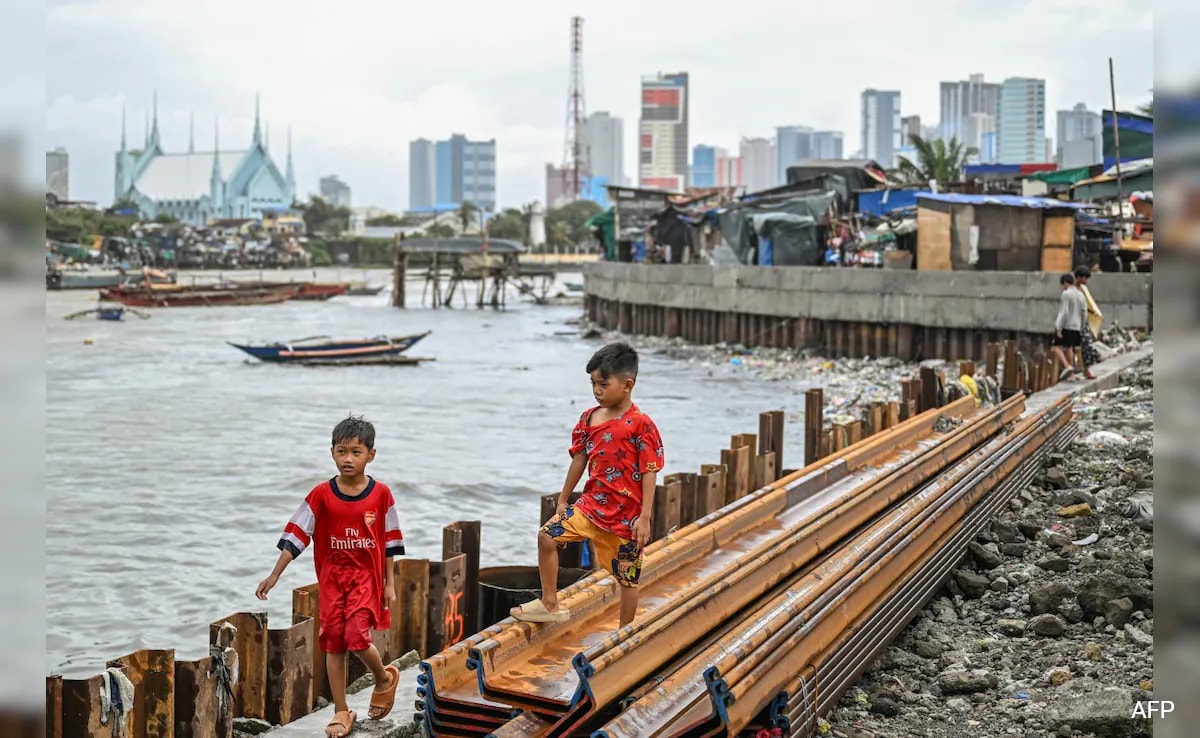Britainâs petrol panic began last week when an ongoing shortage of about 100,000 truck drivers led to nationwide delays of gas deliveries to fuel stations. In recent months, the labor crisis has sparked shortages of milkshakes, chicken and fizzy drinks â and even wiped some beers and traditional pork pies off pub menus.
I had resisted panic buying as a journalist covering the crisis driven by the Brexit vote that sent European drivers out of Britain that was then exacerbated by the coronavirus pandemic.
As British media widely reported that up to 90 percent of petrol stations had been closed, people rushed to fill up their tanks over the weekend.
âLET ALL KEY WORKERS FILL UP FIRST,â read the front page of The Daily Mirror on Tuesday, while The Daily Mail compared dramatic scenes of people in fist fights and pulling out knives to battle over fuel to something out of the âWild West.â
But now it was my turn. I tried to pull into the first gas station as I made my way home from dropping my dog off at a pet-sitter for the weekend. Its entrance was cordoned off with a barrier of plastic cones.
The second had a sign outside that simply read âno fuel.â The third one was surrounded by lines of cars that stretched far into the distance. Some were honking, others seemed more patiently waiting for their chance to pick up the nozzle. âItâs a bloody joke,â groaned one woman with her car window rolled down.
I was just over 20 miles from home and, according to my car, had under 30 miles left in the tank. That didnât leave much room to drive around looking for stations that actually had fuel. I then began to worry: what if I got stuck in traffic and the journey took longer? Would I be stranded alone?
Eventually, I passed a supermarket â which often have attached gas stations â that had no cars or snaking lines outside. For a brief moment I felt hopeful. Then I noticed the hand-written sign: âCar wash only.â
By my seventh gas station, I was no longer surprised to hear they had no fuel but that their shop serving snacks and coffee was âopen as normal.â
Great, I thought. I may run out of fuel in the middle of nowhere â but at least I can eat a cheese sandwich.
With no other option, I rejoined the motorway, the gas light still glaring at me. Overhead, a sign flashed, alerting drivers that there was no fuel left at any of the major petrol stations on the M25 â a 117-mile highway which is one of Britainâs busiest and most important roads.
On WhatsApp friends were sharing tips on which local stations still had fuel, while others told me that some pumps had implemented new rules in response to the crisis â allowing each person to fill up only 30 pounds, or $41, worth of gas. That doesnât get you very far in Britain, where the average petrol price converts to $7 U.S. dollars per gallon.
On social media, I found that many other people seemed to face the same quandary as me: They needed to refuel because they were running on empty but didnât want to branded as part of the problem. Not very many people, it seemed, want to be perceived as a petrol panic buyer fueling the crisis.
A driver who delivers tanks of fuel told my friend that motorists were following him down the highway like ducklings, desperate to find out where he was heading to.
On the radio, the government was urging people not to panic buy and insisting that there was enough fuel for everyone â and that temporary visas would be granted to more than 10,000 foreigners to work as truck drivers and in the food industry. On Tuesday, Britainâs transport minister urged motorists not to fill old water bottles with fuel, while the fire service reminded people tempted to store fuel at home that it was a highly flammable liquid.
At stations across Britain, some desperate frontline workers begged to jump the queue so they could make it to their jobs at hospitals and schools, while others shared memes as the hashtags #petrolgate and #petrolpanic began trending.
âWhich Spice Girl can still get petrol?â âGeri can,â read one meme that circulated widely.
Other British businesses tried to keep the mood upbeat. âNo fuel?â read a handwritten sign outside one British restaurant: âWalk to the pub.â
Finally, I made it back home, with just five miles left in the tank. Still with no gas, itâs unclear how Iâll get anywhere. I live just outside London and links to public transport are limited, which means I hailed an Uber to drive me to the underground station for work Tuesday morning.
âI thought I might have to wait ages for you,â I joked to the driver, citing the petrol crisis. With a smile, my driver said he had a personal fuel hookup. I suddenly felt as though Iâd stumbled into a whole new underground market.
In a local Facebook group, people were coming together in the same way they had during the multiple lockdowns spurred by the coronavirus crisis. Some lucky few with fuller tanks offered free rides to people trying to reach hospital appointments â and to frontline workers stuck without a way to get to work.
Other Facebook groups were not as heartwarming. One userâs simple post â âanyone know where I can get petrol?â â caused a wave of backlash. Some accused the petrol-hunter of taking gas that others needed more â while another demanded to know where the person was planning on driving to. Eventually, the angered Facebook page administrator announced he had turned off aggressive comments relating to the fuel wars taking place in our corner of east London.
To my surprise, the fuel crisis has even made its way onto dating apps.
âSingle. Comes with a full tank of petrol,â read one guyâs profile. How could I resist?
Read more:
.png)











 English (United States) ·
English (United States) ·  Turkish (Turkey) ·
Turkish (Turkey) ·